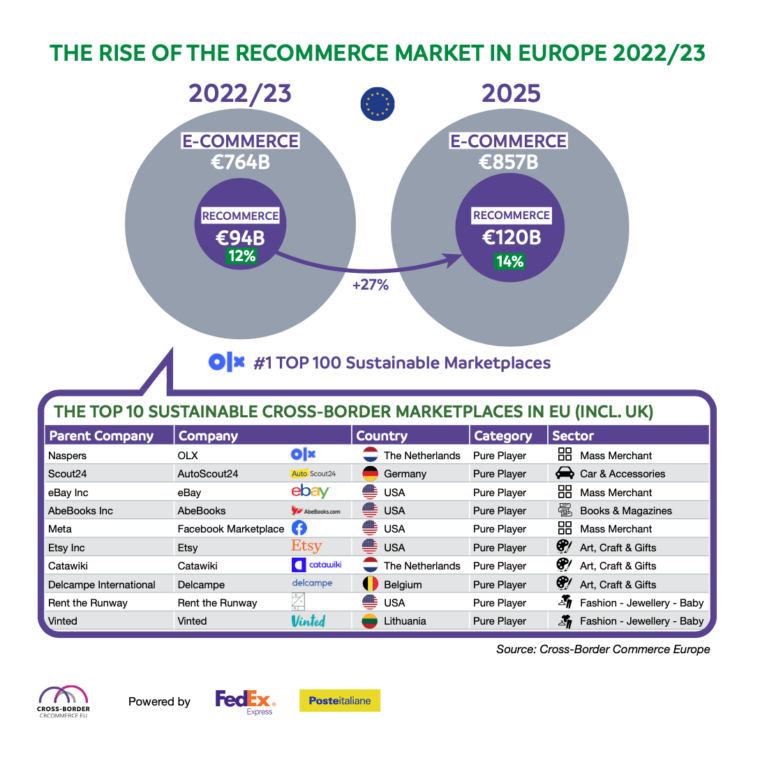Recommerce market worth 94 billion euros

In 2022/23, the European recommerce market was valued at 94 billion euros. The market share, compared to the total European ecommerce market, is now 12.3 percent. It is expected to increase to 14 percent in the next three years.
Recommerce is a relatively new term, which includes solutions like repair, remanufacturing, rental services, reconditioning, refurbishing, and resale. Online marketplaces such as Vinted are good examples of c2c recommerce marketplaces.
Recommerce grows faster than overall retail
According to research by Cross-Border Commerce Europe, the recommerce market is projected to grow 5 times faster than the overall retail market by 2025. Previous research indicated that the recommerce market was worth 75 billion euros in 2021.
The recommerce market value will increase 27% by 2025.
The researchers already projected that the market will be worth 120 billion euros by 2025. With the market’s current growth, that is still to be expected. This means that the market value will increase 27 percent in the next three years.
Image of second-hand shopping is improving
According to the research, 76 percent of online shoppers think that the stigma around second-hand shopping has decreased. And according to 41 percent, buying second-hand has even become a status symbol. This shows that the image of the recommerce market is still improving.
For 69% of sellers, money made by reselling items was helpful in paying bills.
At least 85 percent of shoppers have either bought or sold used goods last year. And 27 percent did that for the first time. For 69 percent of sellers in the recommerce market, the money they made helped them pay bills. And 39 percent said that reselling helped them make ends meet.
Sustainability of recommerce
Many consumers have turned to recommerce for its sustainable image, but the researchers say that there are some limitations to it. “While reselling is a positive step, its benefits could be limited if buyers choose second hand clothes in addition to, rather than instead of, new outfits. Rentals could be more detrimental to the environment, primarily due to the transportation involved in exchanging shared goods. Online peer-to-peer rental platforms offering multi-category fashion products promote sustainability but also increase ‘last mile’ logistics routes for cleaning services.”


Comments